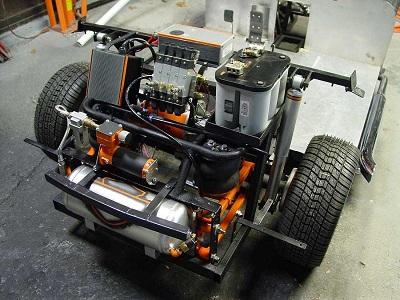News
EV motor controllers pose a big challenge


Motor controllers, responsible for the performance and efficiency of the powertrain in an electric vehicle, are posing major challenges to the auto industry in the country. The domestic manufacturers of motor controllers lack the requisite expertise and experience and the global semiconductor shortage is also coming in the way. The Government must intervene to help the auto industry deal with this serious matter.
The motor controller is an essential component of an EV as it controls the speed and battery consumption. The controller receives signals from brakes and throttle and delivers the signal to the EV motor
The Indian automotive market has been experiencing a shortage of EV controllers. As the EV market in the country was in the early stages, the majority of EV controllers were imported
Electric vehicles (EVs) are rapidly replacing conventional Internal Combustion Engine (ICE)-based vehicles. The primary reason for their popularity is because EVs are more energy-efficient and environmentally-friendly. And what is responsible for the performance and efficiency of powertrain in an EV is motor controller.
A motor controller is a combination of power electronics and embedded micro-computing elements that efficiently convert energy stored in an electric vehicle’s batteries to motion. A motor controller is a component that controls the flow of energy from battery to motor and vice-versa.
The motor controller is a very essential component of an EV as it controls the speed and battery consumption of an EV. The controller receives signals from brakes and throttle and delivers the signal to the EV motor.
The modern electric powertrains use Brush-less Direct Current Motor (BLDCM) or Permanent Magnet Synchronous Motor (PMSM). These motors are much lighter and more efficient than the conventional motors and they require a controller to function efficiently.
A motor controller for an EV is equivalent to a carburetor for an internal combustion engine (ICE). Since a controller contains a microprocessor, an EV cannot function without one. A motor controller may also use ‘regenerative braking’ to charge a battery while driving. In this case, the energy flow is from the motor to the EV battery pack.
The ‘regenerative braking’ feature is now available in the majority of EVs in the market. When one applies brakes to an EV, a signal is sent to the motor controller, instructing it to reverse the energy flow from the motor to the battery. This gradually recharges the battery. The more one applies the brakes, the more charge is gained by the battery.
The Indian automotive market has been experiencing a shortage of EV controllers. As the EV market in the country was in the early stages, the majority of EV controllers were imported. But as the popularity of EVs has grown exponentially in recent years, the controllers are now being manufactured in the domestic market. However, this has significantly slowed the supply of controllers because the expertise and experience required to manufacture EV controllers are currently lacking.
The Indian automotive market is experiencing challenges in manufacturing EV controllers. The auto industry is already feeling the effects of a global shortage of semiconductor chips. The Government must step in and provide monetary and other benefits to the automobile industry in order to deal with this issue and streamline the process.
Source: EVCD
-



 News4 weeks ago
News4 weeks agoKW Delhi 6 Mall Onboards New Brands
-



 News4 weeks ago
News4 weeks agoManasum Senior Living Launches IKIGAI GOA, A Senior Living Community in North Goa, in collaboration with Prescon Homes
-



 News4 weeks ago
News4 weeks agoCommercial Realty Gets Tech Savvy: Fast Construction, Enhanced Convenience
-



 News4 weeks ago
News4 weeks agoBridging India Divide: Top 5 Tier- 2 Cities to Focus On
-



 News3 weeks ago
News3 weeks agoGodrej Properties Sells Rs 3k cr+ Homes of Godrej Zenith, Gurugram, within 3 days
-



 News4 weeks ago
News4 weeks agoMultipoint Connection – A Definite Boon
-



 News3 weeks ago
News3 weeks agoRBI’s Status Quo on Key Policy Rates to Help Maintain the Real Estate Growth Momentum, Say Industry Stalwarts
-



 News1 week ago
News1 week agoOlive Announces Dhruv Kalro as Co-Founder

















